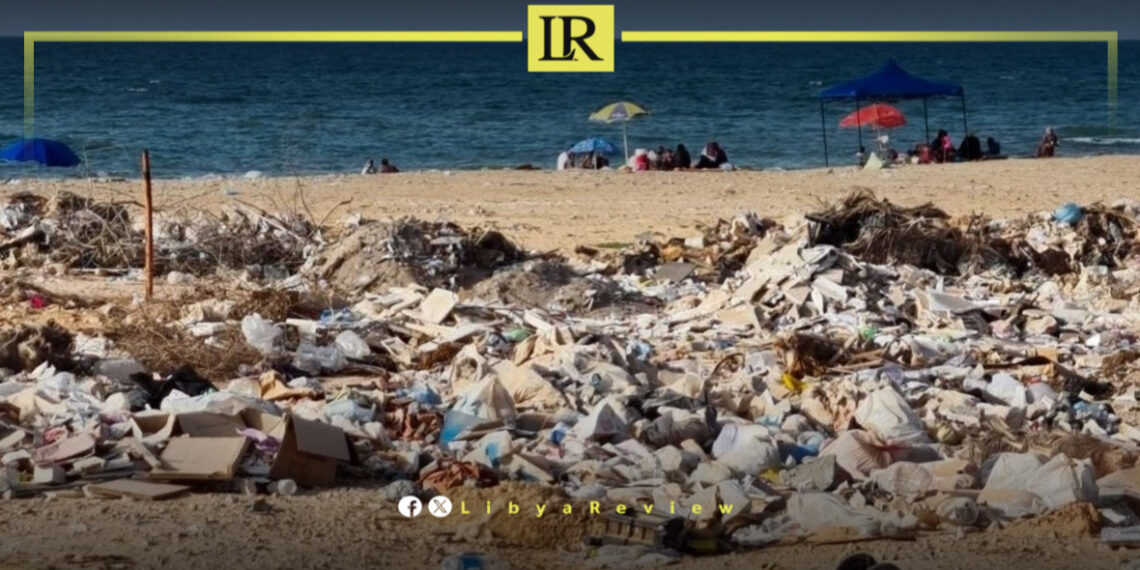A report by Germany’s DW English service has sounded the alarm over mounting environmental threats to Libya’s Mediterranean coastline, warning that overfishing, plastic pollution, rising sea temperatures, and sea-level increases are putting both marine biodiversity and local livelihoods at serious risk.
Among those feeling the impact is Mokhtar Al-Rammash, a fisherman from Sirte, who struggles daily to make a living from the sea. Working from an old plastic boat, he says his fishing nets often come up heavy, not with fish, but with plastic waste.
According to UN estimates, the Mediterranean receives about 730 tons of plastic each day, much of it ending up in fishing grounds along Libya’s shores.
Al-Rammash describes a decline in fish stocks driven by multiple factors. Industrial trawlers, he says, indiscriminately scoop up even the smallest, juvenile fish, stripping the sea of its ability to replenish itself.
Meanwhile, untreated sewage from coastal towns near Tripoli, along with waste from sponge harvesting, kills marine life and degrades habitats. Land reclamation projects, he adds, are destroying the natural breeding grounds of key species.
For local fishing communities, these pressures are not abstract. “This is our only source of income,” Al-Rammash warns, adding that fishermen have repeatedly appealed to the Ministry of Environment for action but have received no response. While willing to join efforts to protect the Mediterranean, many fishermen lack the tools and resources to play an effective role.
Marine experts caution that without urgent action, including stricter fishing regulations, investment in waste management, and the protection of key ecosystems, Libya’s coastal environment may face irreversible damage.
The DW report calls for a coordinated national response that aligns with broader Mediterranean conservation strategies before climate change, pollution, and industrial overfishing push the ecosystem beyond recovery.


